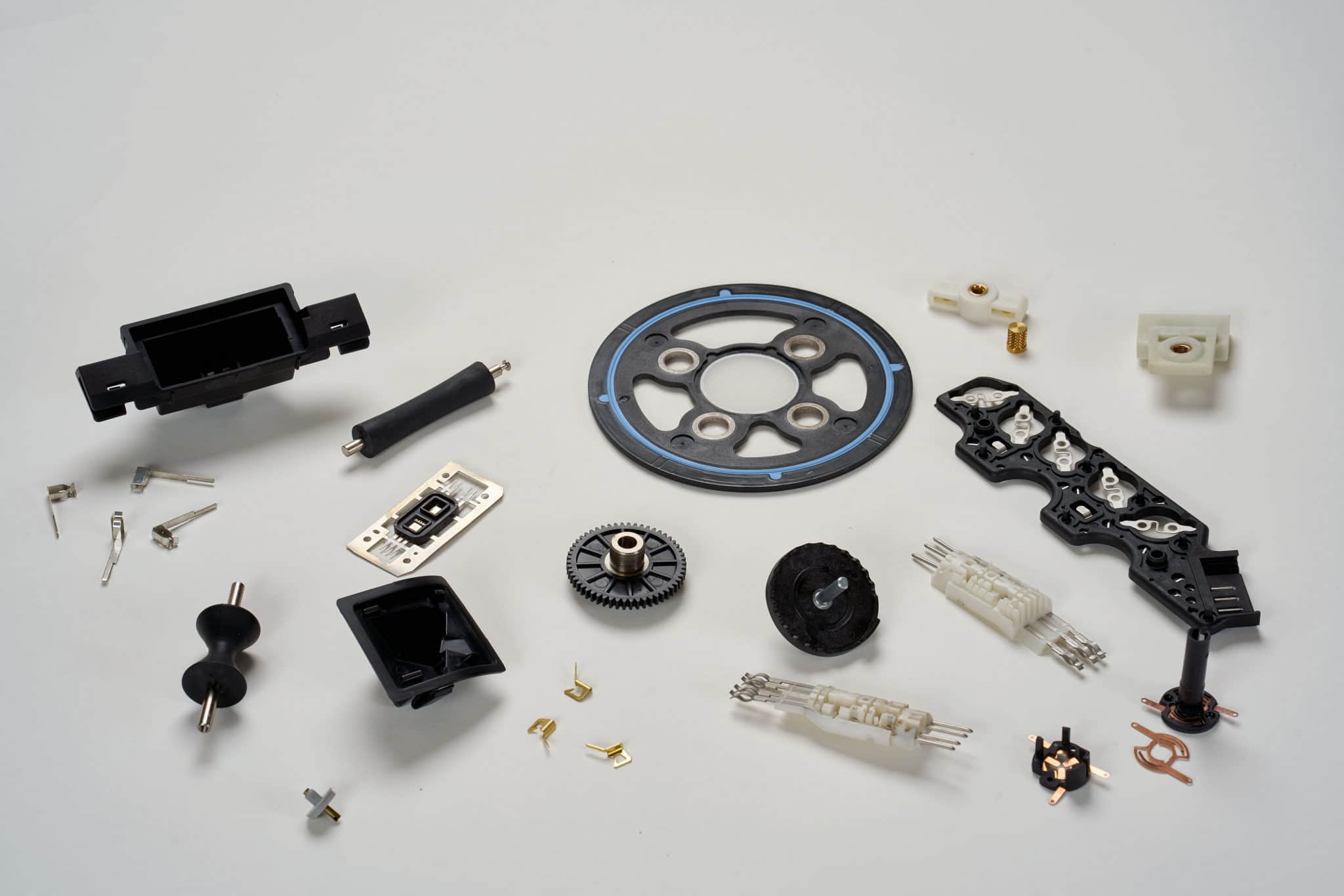
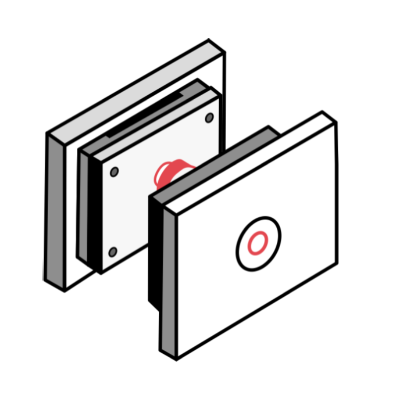
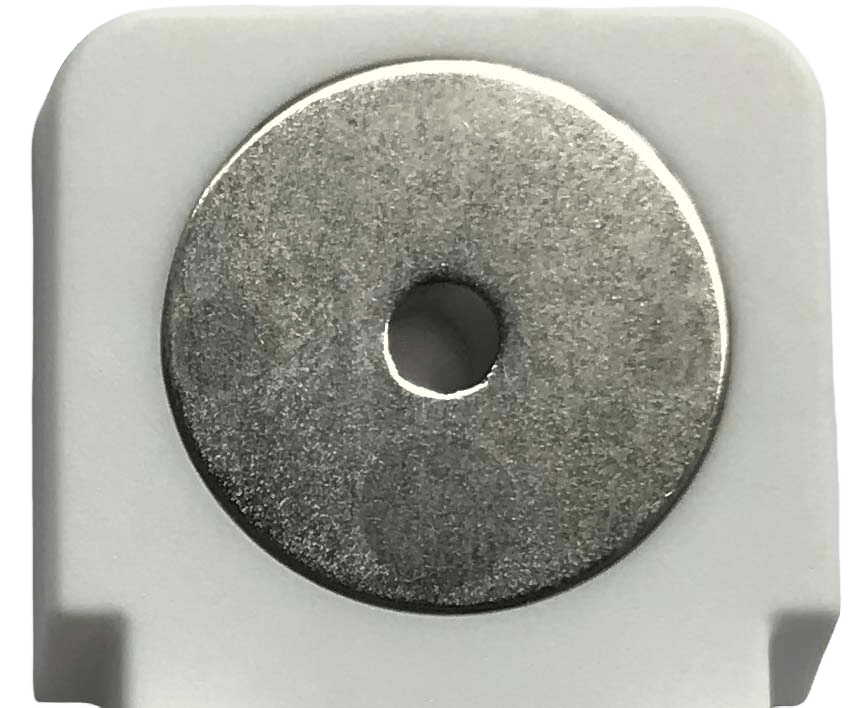
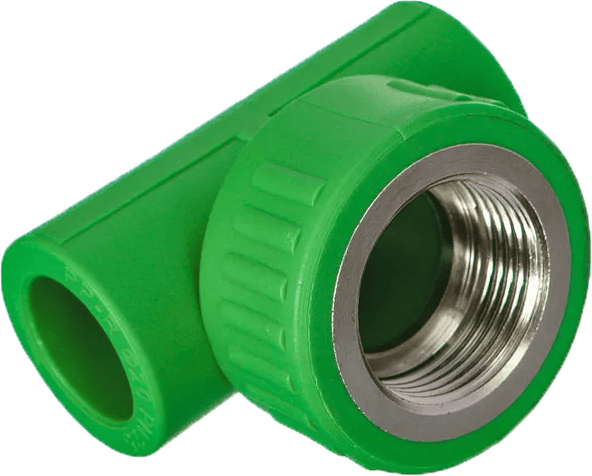
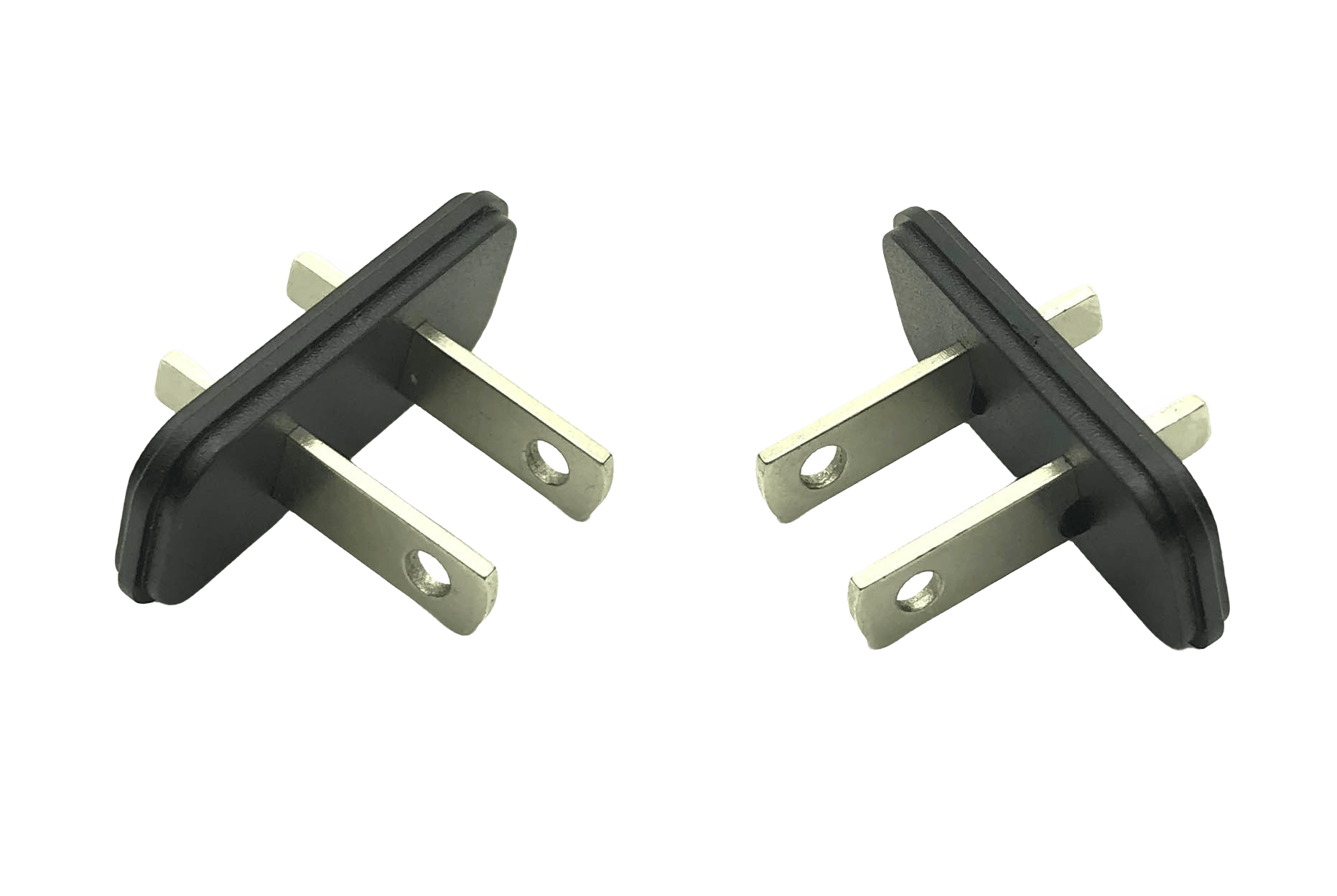

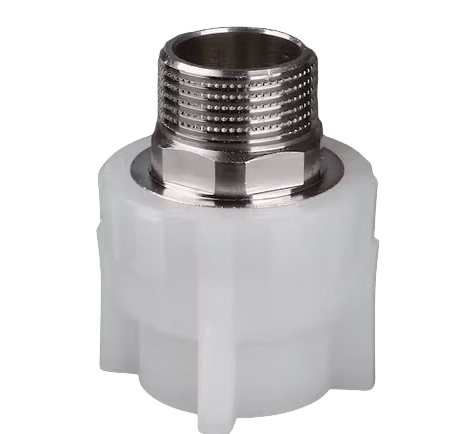
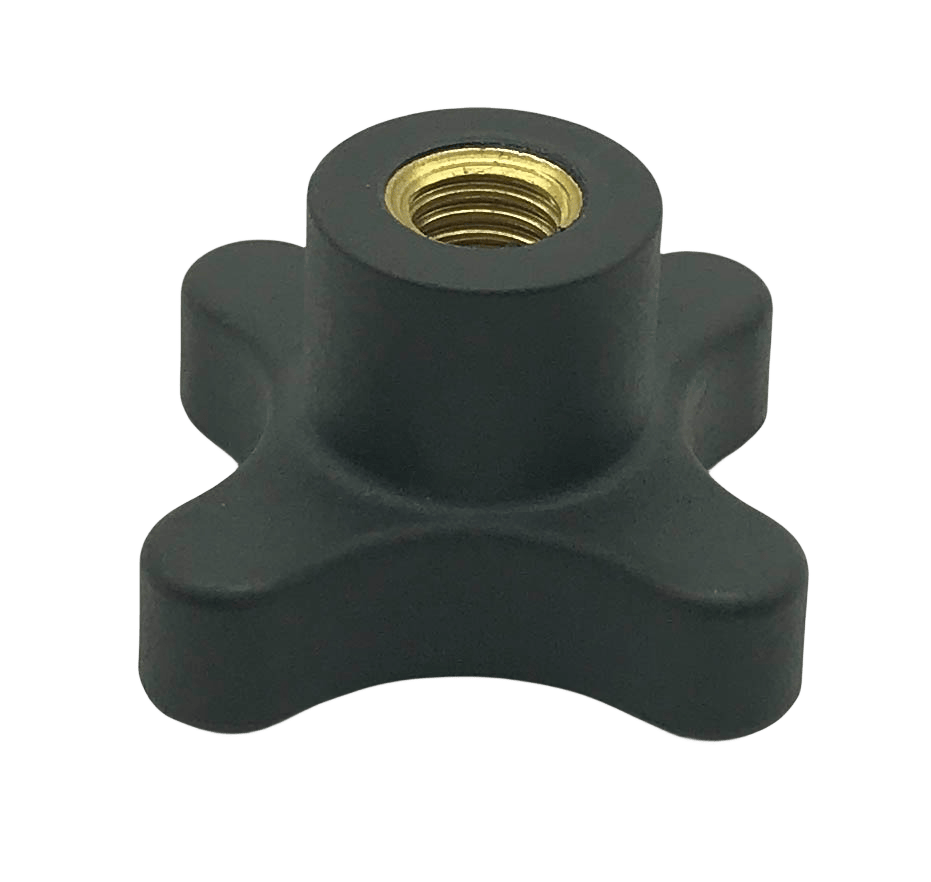
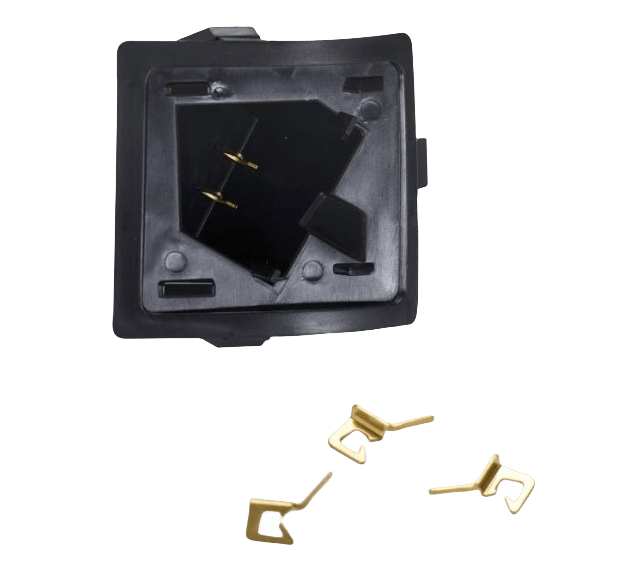
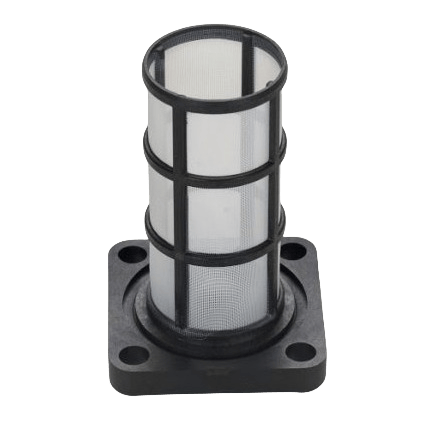
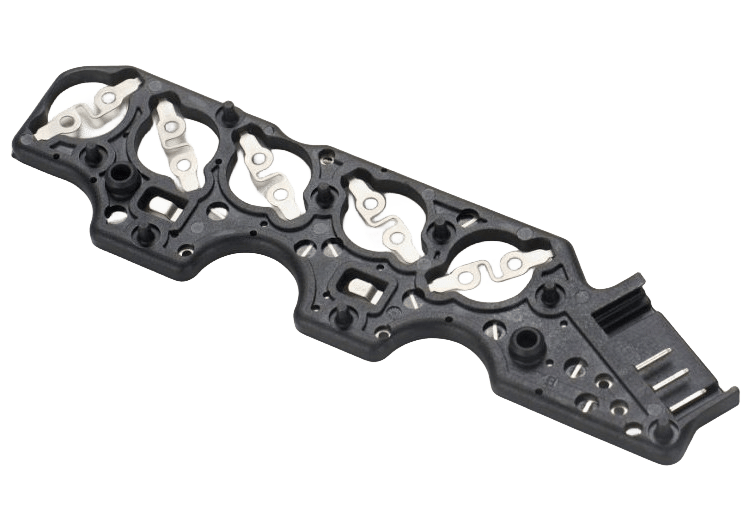
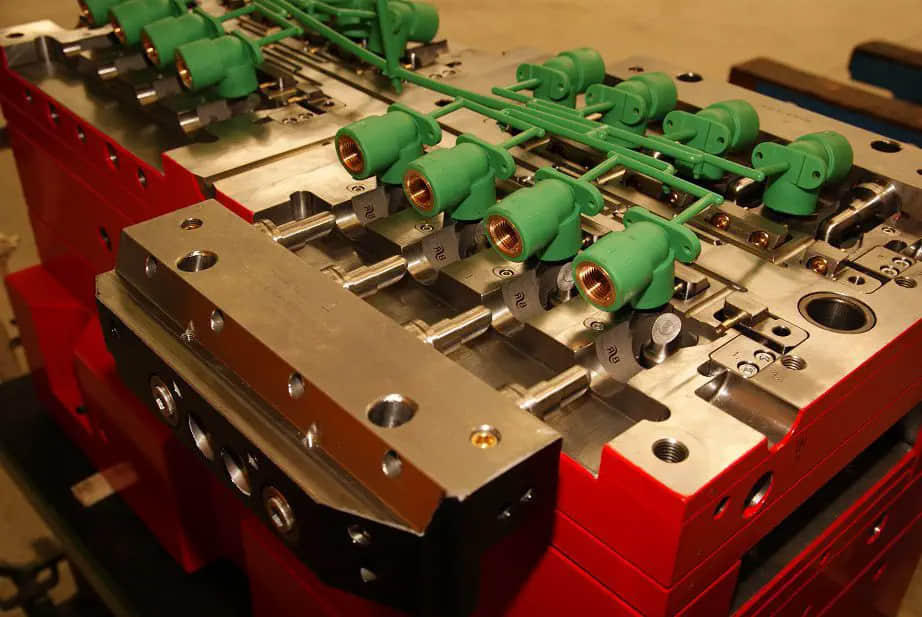
 Improve Durability
Improve Durability Efficiency
Efficiency Eliminate Assembly
Eliminate Assembly Reduced part size and weight
Reduced part size and weight Improve
Part Strength
Improve
Part Strength Increased Design Flexibility
Increased Design Flexibility Increased Component Reliability
Increased Component Reliability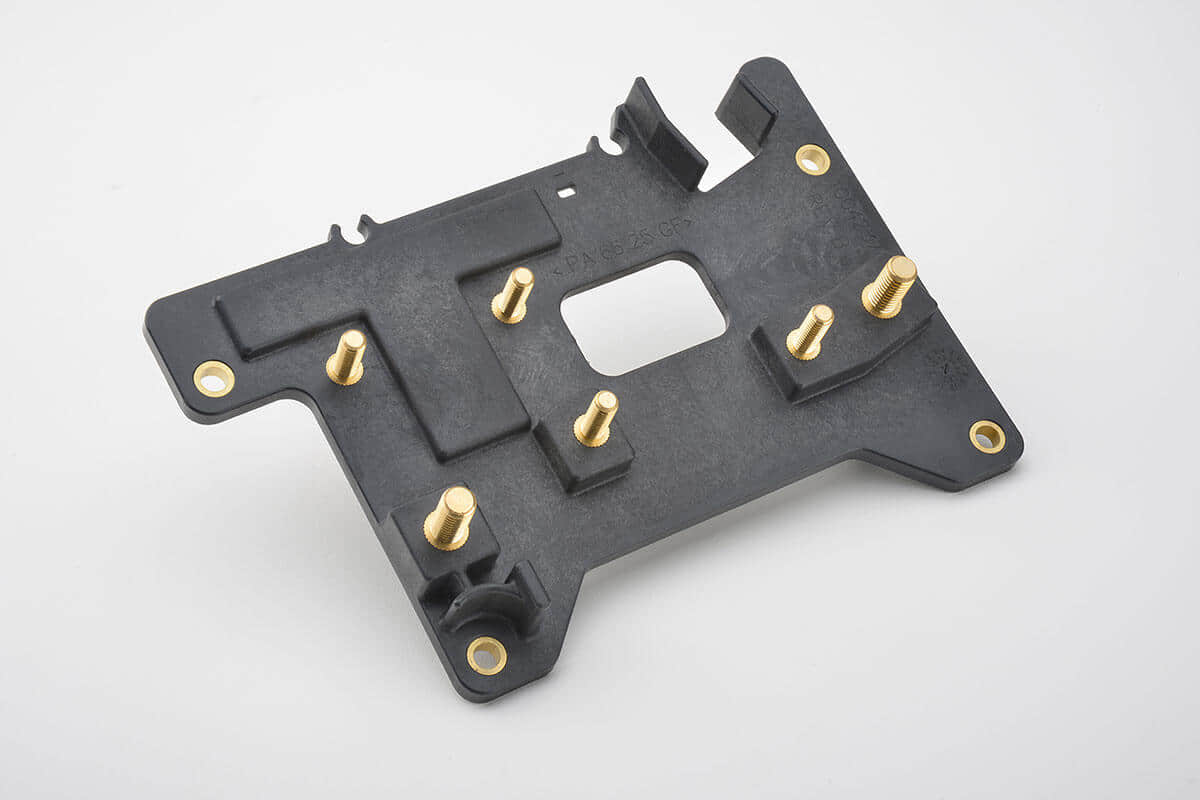
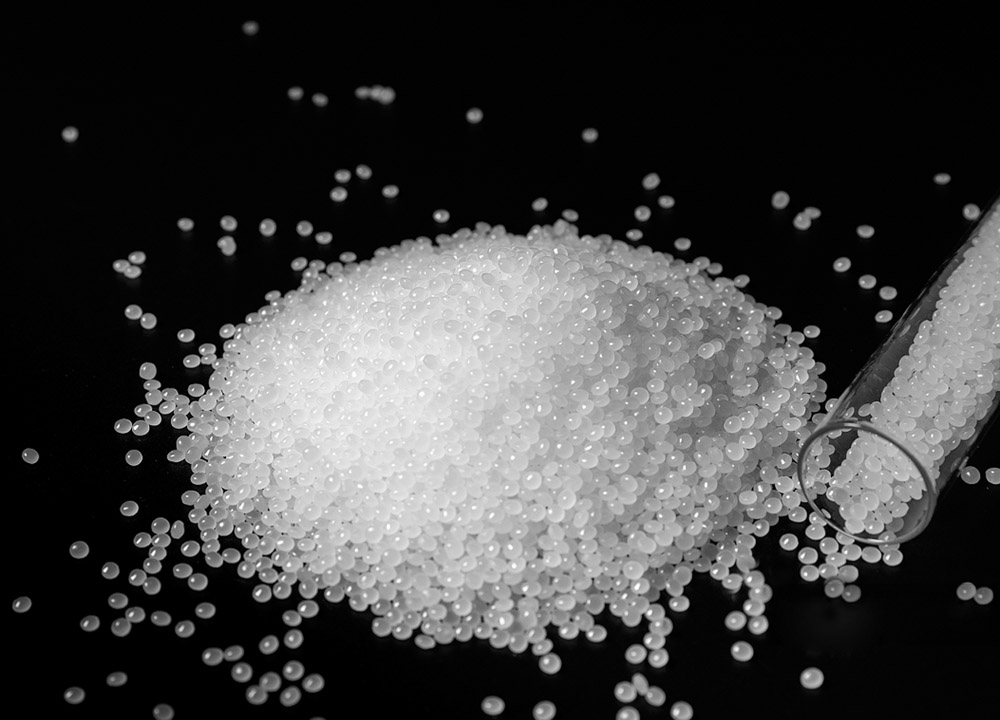
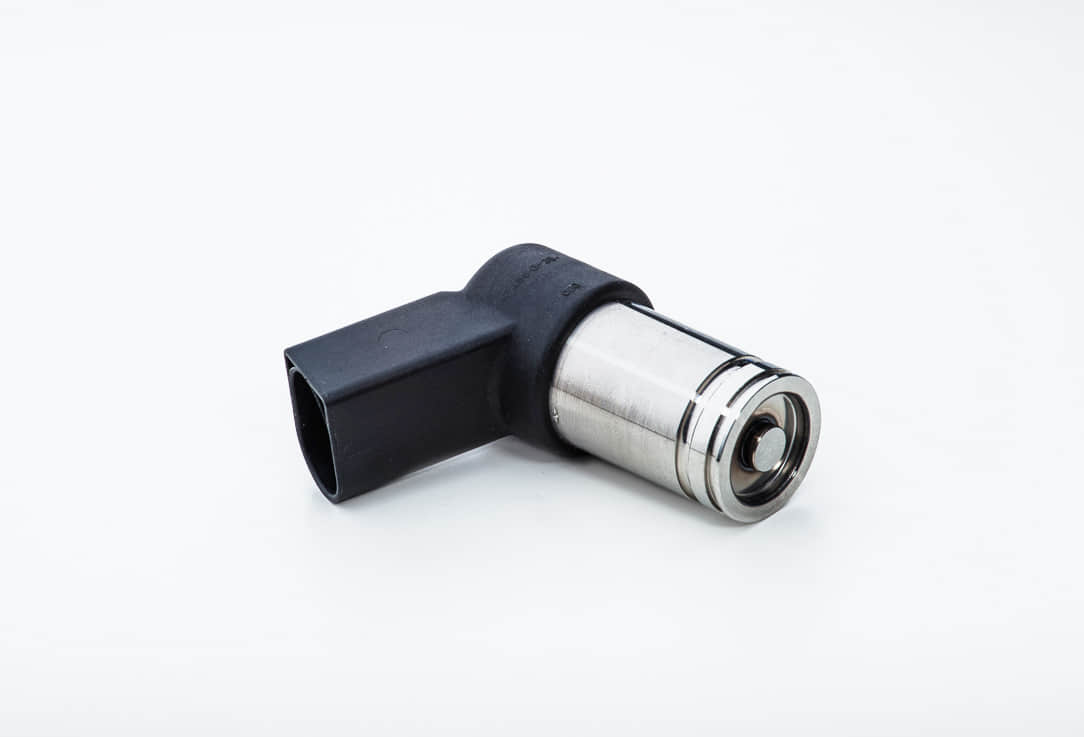
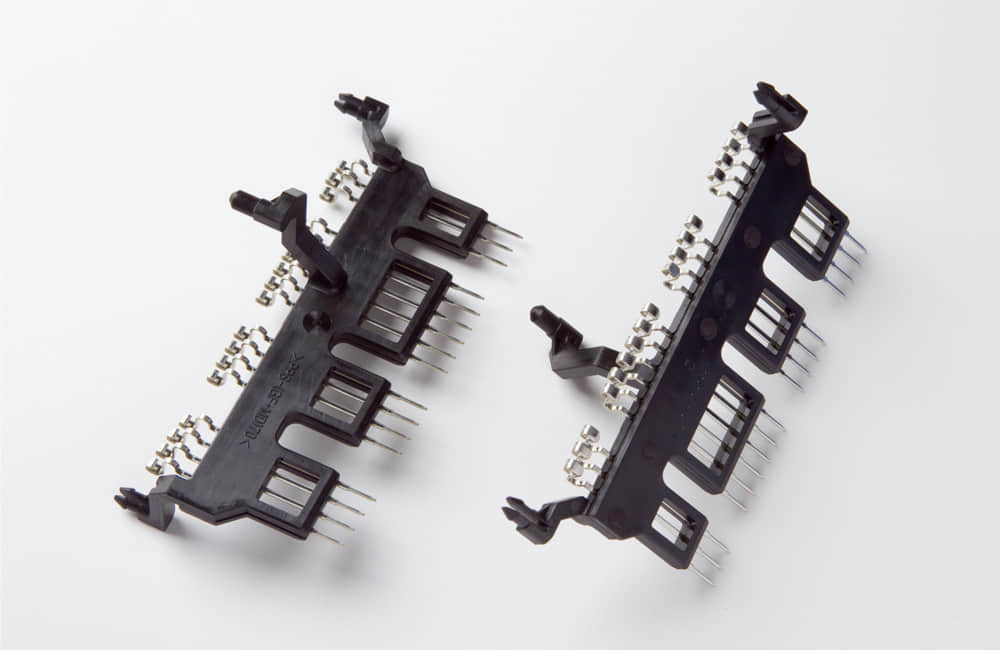

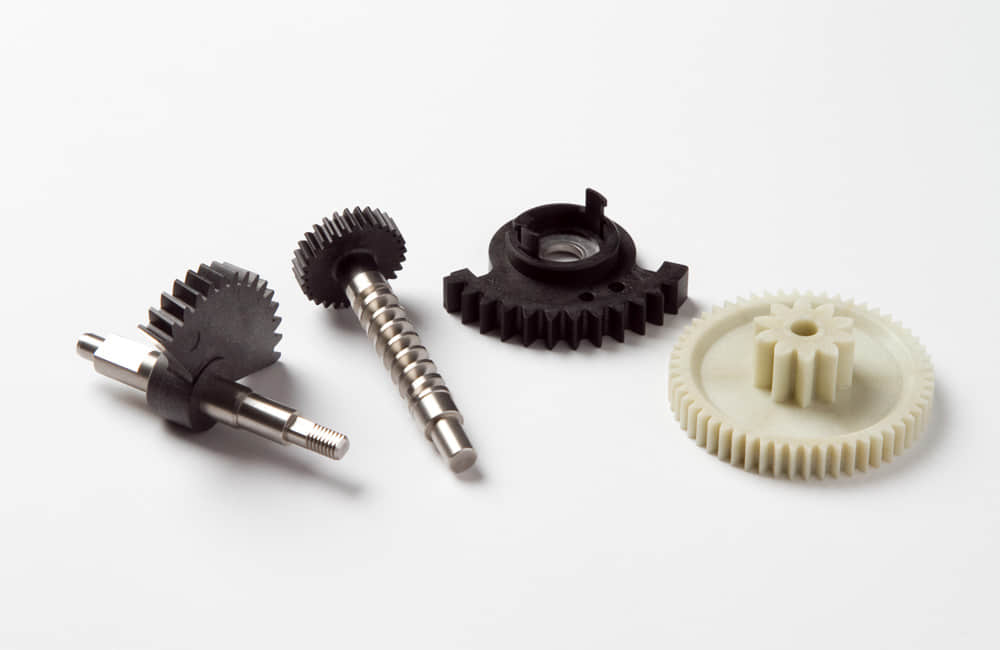
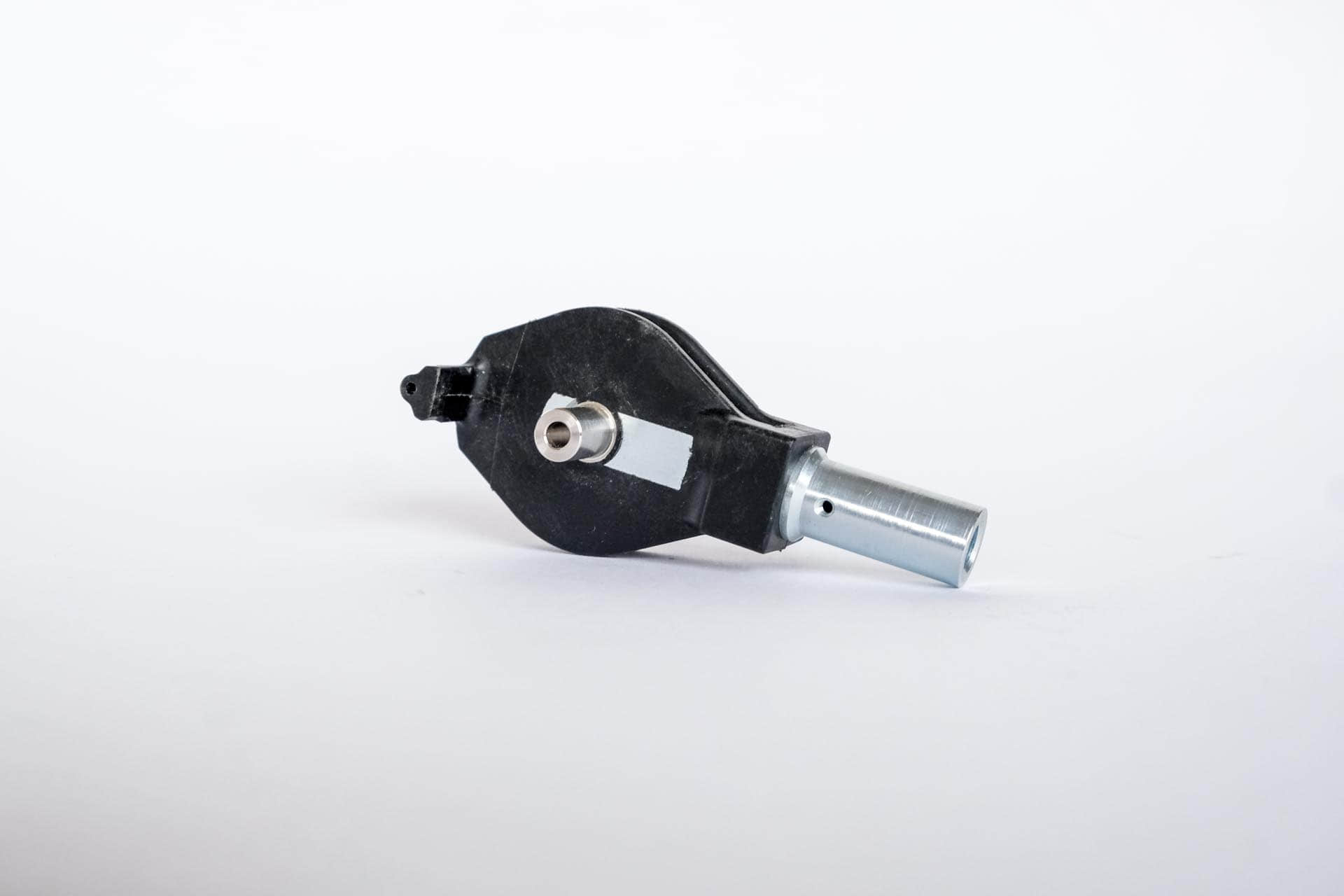
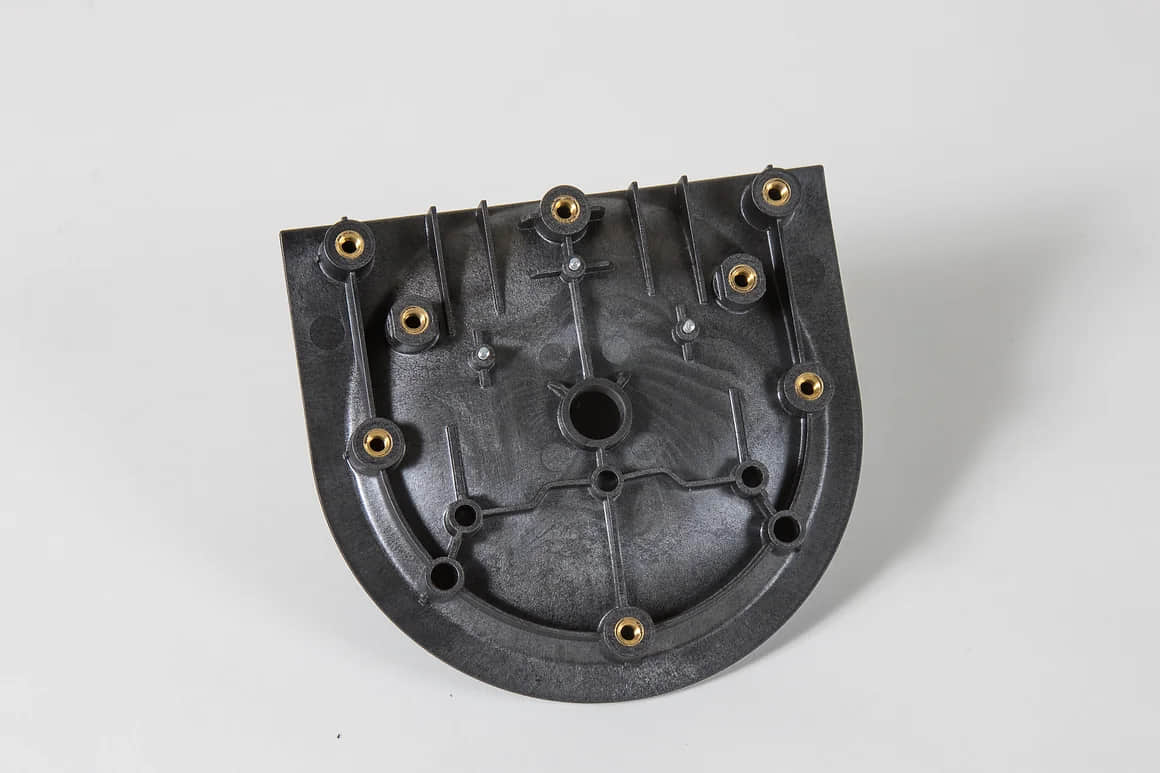
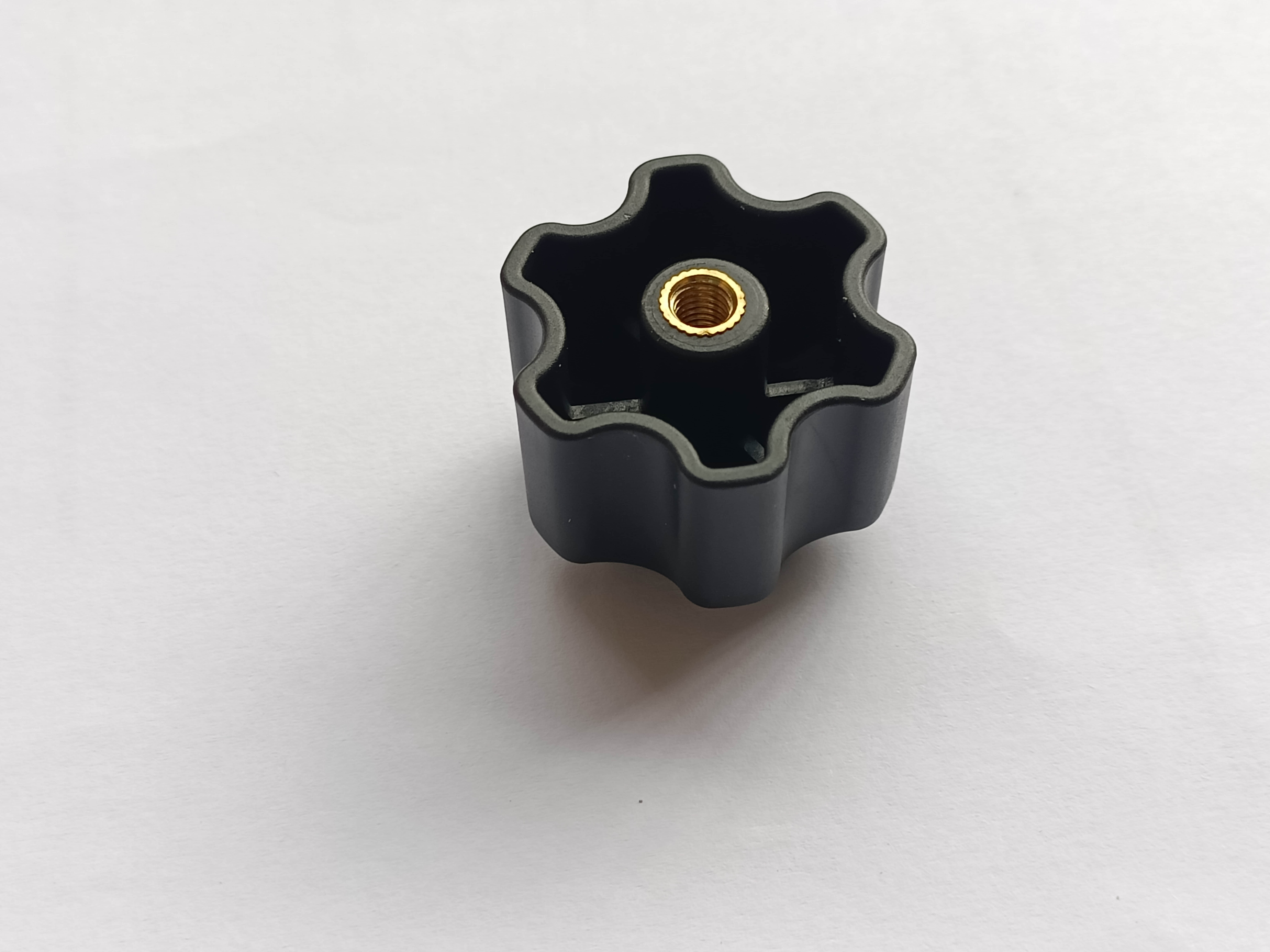
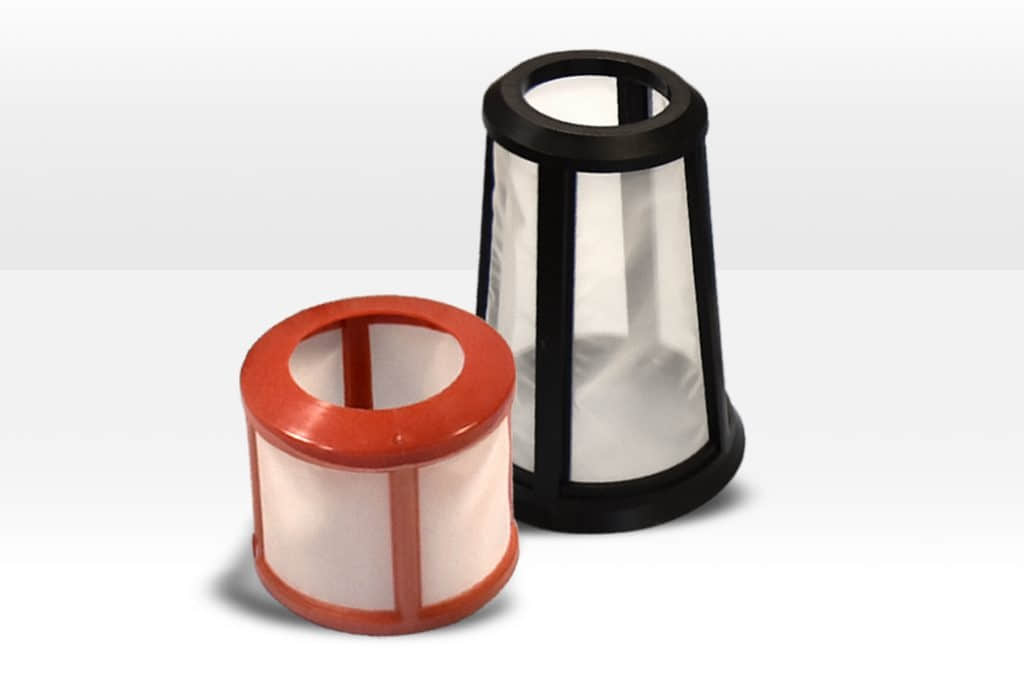
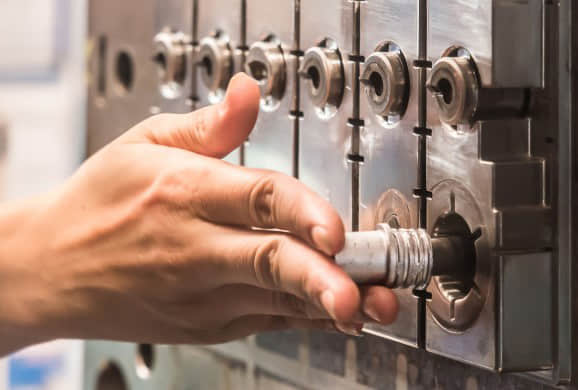











Insert molding involves placing a pre-formed insert (generally is metal) into the mold cavity before the injection molding process begins. The molten plastic material is then injected into the cavity to encapsulate the insert, creating a strong and seamless integration of plastic and metal. Inserts are mainly metal, such as magnets, screws, nuts, copper fasteners, rivets, etc., but the inserts must be able to withstand the high temperature and pressure of injection molding.
Loading inserts into the mold usually is accomplished using manual handloads or automation. Automation minimizes human error, improves efficiencies, and ensures optimal cycle times.
The main difference between them is that: The substrate used for molding is different. In insert molding, the insert is placed in a cavity and molten plastic is molding around the insert to form a component that integrates the plastic and the insert, and the insert is usually metal. In overforming, the substrate is first molding and then placed in the cavity, and the molten plastic is molding around the substrate formed for the first time to form an integrated component of the two types of plastics.
Depending on the complexity of the part, size, and insert material, shape, etc., it usually takes 4 to 6 weeks to complete the insert project.
Generally, when you need to encapsulate a metal part in plastic, and to be economical and durable, insert molding is the most ideal, the most cost-effective process.
Yes, we have more than 10 years of experience in insert molding magnets and overmolding magnets. Factors to consider regarding magnet inserts:
First, the injection mold is generally made of steel. If it has been magnetized before molding, the defect that the magnet will be attracted to the mold during molding must be considered. This should be taken into consideration when designing and making molds.
Second, magnetization must be considered before or after injection molding. Because the injection molding temperature exceeds 200 degrees, excessively high temperatures demagnetize.
Third, magnets are very fragile, and the placement of the magnets must be considered when designing the mold. Once crushed, if it is magnetic, it will be more difficult to handle in the mold.